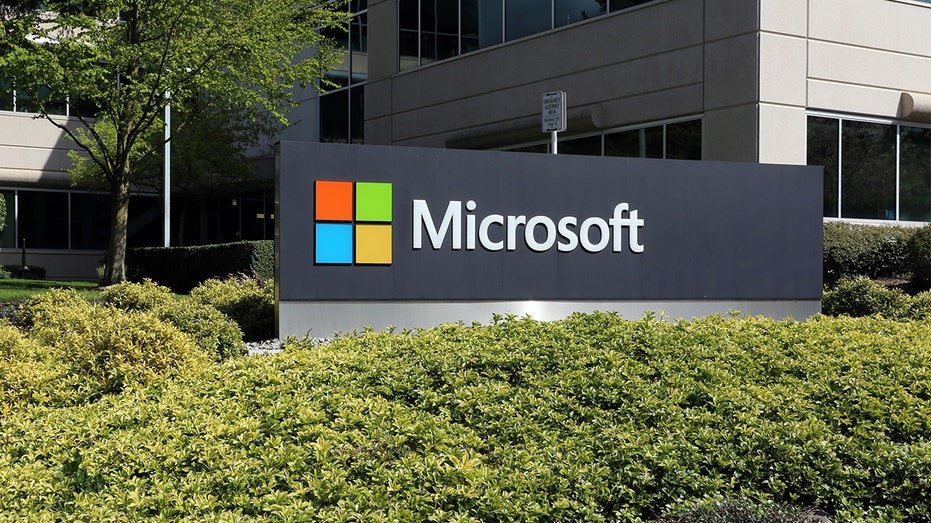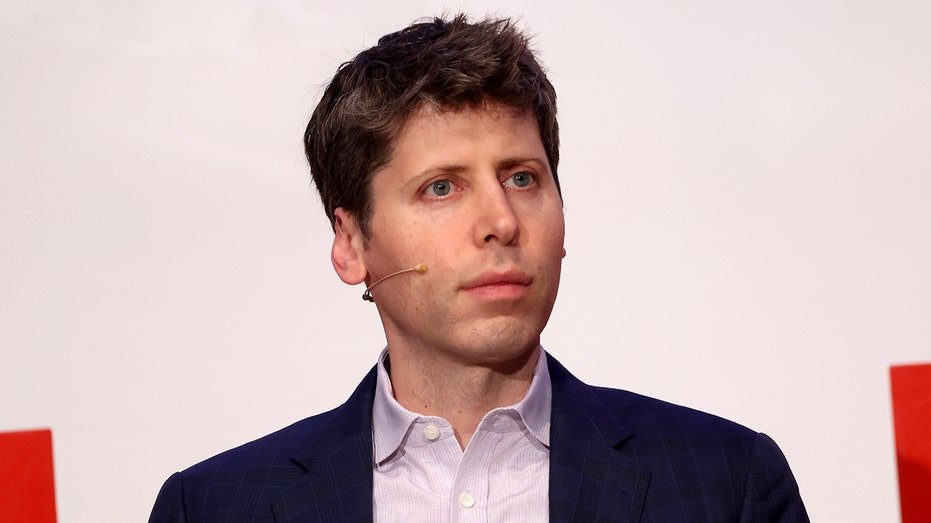Business
AI Stocks to Watch, According to Fund Manager Crushing the S&P 500

Before his portfolio management days, Denny Fish worked as a sales manager at Oracle. He saw the incredible demand for its software products as the dot-com boom flourished, an experience that would later inform his mindset as an investor: What was the next revolutionary idea he could get ahead of?
“I watched the internet boom, I had a front row seat because I was at Oracle and we were in the eye of the storm,” Fish said. “So it shaped my investment philosophy of, ‘Wow, always be looking for that big idea.'”
He continued: “Because the big idea is gonna express itself in a way that nobody can appreciate over multiple years and when you get behind that big idea, don’t let anybody shake you out of it because that’s what’s called a power law in technology investing.”
Two decades later, Fish was perfectly positioned for the AI boom. As a co-manager of the Janus Henderson Global Technology and Innovation Fund (JAGTX), his top holdings are a who’s who in the AI ecosystem: Nvidia, Microsoft, Taiwan Semiconductor, and Broadcom. Those four names alone, all of which he’s held for more than a year and a half, make up 42% of JAGTX.
The impressive lineup has led to a banner few years for Fish. Since the October 2022 lows, his fund is up 136%, crushing the S&P 500’s 81% surge.
Today, Fish still thinks AI is the big idea to get behind. But when asked which stocks he’s most bullish on right now, three out of the four were companies outside his top six holdings in the 25-stock fund.
4 stocks Fish likes right now
The first firm Fish listed — and the one that is among his largest holdings — is Taiwan Semiconductor, as chip demand remains uber-strong. It’s the fund’s third-largest holding at 9.49%.
“If you’re a Broadcom or if you’re Nvidia, there’s only one place you want to go to get your chips manufactured, and that’s TSMC given their process, know-how, and the lead that they’ve created,” he said.
Next, he said Cadence (CDNS), an electronic design automation firm, is well-positioned for continued AI hardware demand. The stock is the fund’s eighth-biggest holding at 2.47%.
“It’s a global duopoly,” he said of Cadence and its competitor, Synopsis. “They have dominant market positions, incredible returns on capital, and there are businesses that you can’t move forward with chip design without one of those two companies.”
Third, Fish is bullish on KLA (KLAC), which produces process control systems for semiconductor chips. The firm “has a very dominant position globally, in that swim lane for, for semiconductor capital equipment,” Fish said.
At 1.88%, it’s JAGTX’s thirteenth-largest holding.
Finally, Fish mentioned Mercado Libre (MELI), a Latin-American e-commerce platform with a fintech business that offers digital wallets, lending, payment solutions, and money transfers. Fish said he’s impressed with the company’s use of AI.
“They’re doing really unique things with AI through their entire portfolio to improve the customer experience and also improve their underwriting and their fintech business,” he said.
Mercado Libre is the fund’s seventh-largest holding at a 2.64% weighting.
Business
Databricks AI Chief to Exit, Launch a New Computer Startup

(Bloomberg) — Naveen Rao, the head of artificial intelligence at the $100 billion startup Databricks Inc., is planning to leave his position to launch a new venture making a novel type of computer, according to a person familiar with the matter.
A spokesperson for Databricks confirmed that Rao is transitioning to an advisory role at the company, and said that Databricks is planning to invest in his new startup. The spokesperson declined to disclose the size of the investment.
Rao has also held early talks with other investors about backing the new company, which would focus on building a next-generation computer to address the rising costs of AI computing power, said the person familiar with the conversations, who asked not to be named discussing private information.
Rao declined to comment on his plans for the new company.
Rao is a serial entrepreneur who sold his data and AI analytics startup MosaicML to Databricks in 2023 for $1.3 billion. MosaicML had raised about $30 million from investors including Maverick Ventures, Lux Capital and DCVC. Before that, Rao co-founded Nervana Systems, a machine intelligence platform, which was acquired by Intel Corp. in 2016 for about $350 million.
Given Rao’s track record, the new venture could attract significant investor interest at a lofty valuation. He would also join a wave of prominent tech executives who’ve launched startups, including former OpenAI Chief Technology Officer Mira Murati, whose company Thinking Machine Labs was last valued at $10 billion, and ex-Salesforce co-CEO Bret Taylor, whose two-year-old AI startup Sierra was also recently valued at $10 billion.
Databricks recently raised $1 billion in a funding round that made it one of the country’s most valuable startups. The round was co-led by Andreessen Horowitz, Insight Partners, MGX, Thrive Capital and WCM Investment Management.
More stories like this are available on bloomberg.com
Business
Rent the Runway Adds AI Enhancements Amid Transformation

Rent the Runway is continuing to roll out new personalized recommendations and artificial intelligence (AI)-powered enhancements as part of a wide-ranging transformation of its fashion subscription, rental and resale platform.
Business
OpenAI nonprofit gains $100B stake while retaining control of AI company

NVIDIA CEO and co-founder Jensen Huang commends President Donald Trump’s A.I. agenda and outlines what the country’s job future will look like on ‘Special Report.’
Artificial intelligence giant OpenAI on Thursday announced its nonprofit parent will retain control of the company while also gaining an equity stake worth more than $100 billion.
The move will allow OpenAI to raise new capital while also making its nonprofit parent company “one of the most well-resourced philanthropic organizations in the world,” according to Bret Taylor, chairman of OpenAI’s board.
OPENAI TEAMS UP WITH WALMART TO TRAIN MILLIONS OF WORKERS IN ARTIFICIAL INTELLIGENCE
“This recapitalization would also enable us to raise the capital required to accomplish our mission — and ensure that as OpenAI’s [public benefit corporation] grows, so will the nonprofit’s resources, allowing us to bring it to historic levels of community impact,” Taylor said in a statement.
In this photo illustration, the OpenAI logo is seen displayed on a smartphone screen. (Thomas Fuller/SOPA Images/LightRocket via Getty Images / Getty Images)
OpenAI and Microsoft also said in a joint statement on Thursday that they signed a non-binding memorandum of understanding (MOU) to shape their next phase of partnership and are actively working to finalize a definitive deal. The companies said they are focused on building “the best” artificial intelligence tools that are also safe.
OPENAI CEO SAM ALTMAN WARNS OF AI FRAUD CRISIS ‘VERY SOON’
“OpenAI and Microsoft have signed a non-binding memorandum of understanding (MOU) for the next phase of our partnership,” the two companies said in a joint statement Thursday afternoon. “We are actively working to finalize contractual terms in a definitive agreement. Together, we remain focused on delivering the best AI tools for everyone, grounded in our shared commitment to safety.”

The Microsoft headquarters campus in Redmond, Washington. (iStock / iStock)
Microsoft has reportedly invested around $13 billion in the ChatGPT creator since 2019.
A MAJORITY OF SMALL BUSINESSES ARE USING ARTIFICIAL INTELLIGENCE
In May, OpenAI announced it was scuttling its plan to move the company away from a nonprofit structure to becoming a for-profit company. The ChatGPT-maker created a for-profit limited liability company (LLC), which it converted into a public benefit corporation that considers the interests of shareholders as well as OpenAI’s mission. The tech giant announced at the time that OpenAI’s nonprofit would have operational control over the public benefit corporation and would be a large shareholder in it.

Sam Altman, co-founder and CEO of OpenAI, speaks during a panel discussion titled “The Age of AI” at the Technical University of Berlin on February 07, 2025, in Berlin, Germany. (Sean Gallup/Getty Images / Getty Images)
OpenAI CEO Sam Altman, who prompted the company’s exploration of moving to a for-profit structure to make it easier for the company to raise the large amounts of money for investments he thinks will be needed to achieve artificial general intelligence (AGI), sent a letter to employees at the time explaining the decision and what it means for the company.
GET FOX BUSINESS ON THE GO BY CLICKING HERE
“OpenAI was founded as a nonprofit, is today a nonprofit that oversees and controls the for-profit, and going forward will remain a nonprofit that oversees and controls the for-profit. That will not change,” Altman wrote in May.
FOX Business’ Eric Revell contributed to this report.
-

 Business2 weeks ago
Business2 weeks agoThe Guardian view on Trump and the Fed: independence is no substitute for accountability | Editorial
-
Tools & Platforms1 month ago
Building Trust in Military AI Starts with Opening the Black Box – War on the Rocks
-

 Ethics & Policy2 months ago
Ethics & Policy2 months agoSDAIA Supports Saudi Arabia’s Leadership in Shaping Global AI Ethics, Policy, and Research – وكالة الأنباء السعودية
-

 Events & Conferences4 months ago
Events & Conferences4 months agoJourney to 1000 models: Scaling Instagram’s recommendation system
-

 Jobs & Careers2 months ago
Jobs & Careers2 months agoMumbai-based Perplexity Alternative Has 60k+ Users Without Funding
-

 Podcasts & Talks2 months ago
Podcasts & Talks2 months agoHappy 4th of July! 🎆 Made with Veo 3 in Gemini
-

 Education2 months ago
Education2 months agoVEX Robotics launches AI-powered classroom robotics system
-

 Education2 months ago
Education2 months agoMacron says UK and France have duty to tackle illegal migration ‘with humanity, solidarity and firmness’ – UK politics live | Politics
-

 Funding & Business2 months ago
Funding & Business2 months agoKayak and Expedia race to build AI travel agents that turn social posts into itineraries
-

 Podcasts & Talks2 months ago
Podcasts & Talks2 months agoOpenAI 🤝 @teamganassi


